MercoPress. South Atlantic News Agency
Economy
-
Tuesday, January 14th 2014 - 23:54 UTC
US congress negotiating spending bill to avoid another shutdown of government
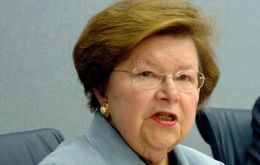
Negotiators in the US Congress unveiled a 1.1 trillion dollars spending bill that aims to prevent another government shutdown while boosting funding levels slightly for military and domestic programs - but not for “Obamacare” health reforms.
-
Tuesday, January 14th 2014 - 18:34 UTC
Falklands fisheries will come under attack from Argentina so as to 'strangle the Islands'' economy
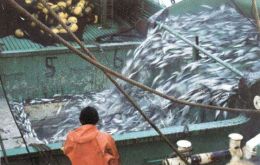
Argentina is preparing a battery of instruments to attack the Falklands fisheries and involved fishing companies with the purpose of 'strangling the economy' of the Islands thus forcing the UK to sit and dialogue on South Atlantic Islands sovereignty, according to a piece by La Nacion columnist Martín Dinatale.
-
Tuesday, January 14th 2014 - 07:50 UTC
China becomes the leading market for Uruguayan meat exports
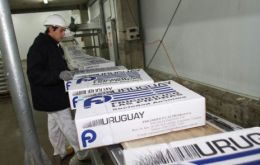
Uruguay's meat exports slid 6.5% in volume during 2013 compared to the previous year, but the big news is that China has become the main client for beef, followed by Nafta countries, (US, Canada and Mexico), according to the latest release from the country's National Meat Institute, INAC.
-
Tuesday, January 14th 2014 - 07:32 UTC
Mercosur and EU to exchange tariff reduction proposals in early February
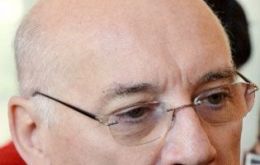
Paraguay's Foreign minister Eladio Loizaga said on Monday that at the latest in early February Mercosur and the European Union would be exchanging their tariff reduction proposals for the much delayed free trade agreement. The deadline originally was December but it was delayed on request from Brussels.
-
Tuesday, January 14th 2014 - 00:08 UTC
Bad years and non encouraging prospects for Uruguay fisheries exports
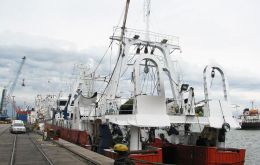
Following on two years of poor performance and results, Uruguay's fishing industry is expected to face similar conditions in 2014, with ongoing labor disputes and tougher international markets particularly the European Union and Nigeria in Africa, which absorbed most of the country's hake, croaker and sea trout.
-
Tuesday, January 14th 2014 - 00:00 UTC
Foreign Office stretched “almost to the limit”, warns Parliament: “a more realistic approach needed”
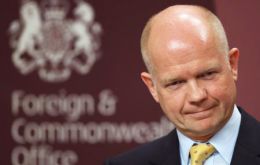
The Foreign Office is being stretched “almost to the limit” as it attempts to cut spending at a time of international turbulence while having to cope with additional demands such as the London Olympics, MPs have said.
-
Monday, January 13th 2014 - 07:35 UTC
A frustrated Mujica calls for a readjustment of Mercosur legal framework

Uruguayan president José Mujica said that members of Mercosur must readjust the block's legal framework ‘to make it work’ so that differences among its partners can be resolved in an institutional framework. He insisted on a review and amendment of mechanisms with greater flexibility and more adapted to current circumstances.
-
Monday, January 13th 2014 - 07:27 UTC
Nicaragua announces that construction of inter-ocean canal begins this year

President Manuel Ortega said on Saturday that the construction of a massive inter-oceanic canal in Nicaragua that could significantly alter global trade would start at the end of 2014. Ortega gave a Chinese group a concession to manage the future shipping channel for 50 years, with the possibility to renew the contract for another 50.
-
Monday, January 13th 2014 - 07:09 UTC
Paraguay plans to climb from eighth to world's fifth exporter of beef by 2018
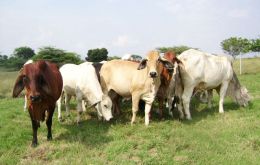
One of Paraguay's priorities is to make the country the world's fifth exporter of beef by 2018, according to Industry and Trade minister Gustavo Leite. The land locked member of Mercosur currently holds the eighth position.
-
Saturday, January 11th 2014 - 11:04 UTC
President Obama names Stanley Fischer vice-chair of the Federal Reserve

US President Barack Obama Friday nominated former Israeli central bank governor and renowned economist Stanley Fischer as vice chair of the Federal Reserve, completing a shakeup of the board's leadership.
